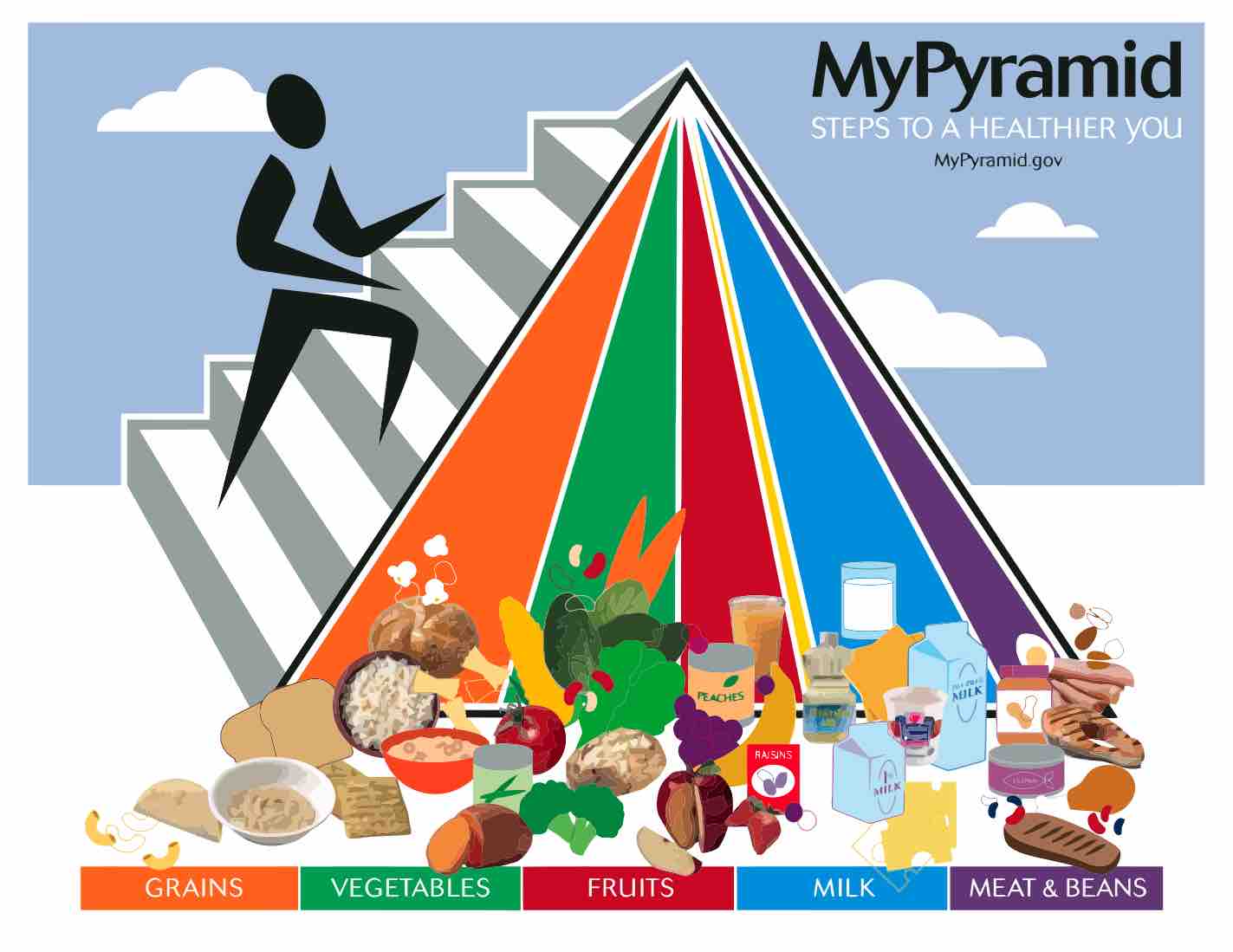Human Nutrition and Health
From Hippocrates' classic line "let food be your medicine, and medicine be your food," to the popular modern warning that "you are what you eat," humans have always understood the connection between nutrition and health. The key to understanding why food has such an impact on overall health lies in the physiological needs of human cells. Cells rely on nutrients in food to function properly. Problems like disease and disability occur when the body receives inadequate nutrition.
Needs of the Body
In order to function properly, the human body must meet specific caloric and nutritional needs.
Caloric needs
Caloric needs refer to the energy required to carry out various chemical reactions within each cell of the body. The body gets energy from macronutrients—the fats, carbohydrates, and proteins in the food we eat. These molecules are broken down into essential amino acids and fatty acids and used as fuel for cellular functions. The number of calories a person requires per day varies based on an individual's age, sex, height, and physical activity. If excess caloric energy is consumed, beyond what is needed to maintain body functioning, it is stored in adipose (fat) tissue.
Nutritional needs
Along with its need for energy from macronutrients, the body requires a variety of micronutrients, such as vitamins and minerals, to support tissue growth, enzyme structure, and cellular functions. These can be found in a variety of fruits, vegetables, fibers, and water.

The USDA food pyramid
The USDA Food Pyramid demonstrates the variety and quantity of food needed to promote proper body function and prevent disease. Grains, vegetables, dairy, and fruits are more necessary to healthful diets than meat and beans.
The Basics of Nutrition: Macronutrients, Amino and Fatty Acids, and Micronutrients
Macronutrients
Macronutrients include carbohydrates, proteins, and fats. Carbohydrates produce necessary metabolic energy for the body. Fiber is an important carbohydrate that is often implicated in disease prevention, as increases in fiber have been found to correlate with decreases in colon cancer, heart disease, and adult-onset diabetes.
Amino and Fatty acids
Amino acids are organic compounds primarily composed of oxygen, hydrogen, nitrogen, and carbon. Proteins are made up of chains of amino acids connected by peptide bonds; they form hormones, enzymes, and antibodies within the human body. There are twenty standard amino acids, nine of which are essential and must be obtained from food.
Fats, or lipids, are combinations of fatty acids. Although it is often vilified, fat serves a vital function in the body, serving as stored energy, protecting organs, and helping to regulate body temperature. Fats are classified as saturated (generally bad) and unsaturated (generally good), depending on the structure of fatty acids involved. Omega-3 and omega-6 fatty acids are particularly important in maintaining health, while trans fatty acids have been found to harm body function.
Micronutrients
Micronutrients include dietary vitamins and minerals which are necessary to sustain health. Supplements can be used to make up for not getting enough micronutrients from diet alone. Vitamin deficiencies may result in physical dysfunction, including impaired immune function, premature aging, and even poor psychological health. The benefits of trace minerals range from bone and tooth formation to acid-base balance.
Malnutrition
Malnutrition refers to insufficient, excessive, or imbalanced consumption of nutrients. In developed countries, this often occurs in the form of overconsumption of sugary, nutrient-deficient food, which is linked to obesity and numerous related health conditions like diabetes, hypertension, and heart disease. In the developing world, where access to food is often compromised, malnutrition often manifests as hunger, starvation, and malnourishment. Chronic malnourishment prevents healthy growth and impairs vital body functions; this leads to physical health problems and, eventually, death. Consequently, one of the best things a person can do to promote overall health and wellness is to maintain adequate nutrition.
Psychological impact of nutrition deficiency
There is a reciprocal relationship between the physical and psychological effects of poor nutrition. While malnutrition refers to physical impairments resulting from a poor diet, the underlying nutritional deficiencies can have significant impact on mental well-being (including perception and judgment), and often exacerbate existing psychological disorders. Existing or incipient psychological conditions (e.g. eating disorders like anorexia and bulimia) can cause nutritional deficiency and result in poor physical health.